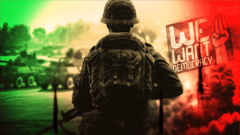As Myanmar's military regime grapples with increasing resistance, an undercover network of soldier-spies dubbed "Watermelons" is emerging, quietly gathering intelligence for pro-democracy rebels. This dramatic shift in military dynamics highlights a significant internal fracture, as the military’s grip on power weakens.
According to an investigation by the BBC, the military currently controls only 21% of Myanmar's territory, a stark decline from its dominance prior to a coup in February 2021. Outwardly showing loyalty to the junta while secretly aiding pro-democracy forces, these spies play a pivotal role in gathering essential military information.
Kyaw, a soldier-spy who recently defected to the resistance, expressed that witnessing the military's brutality against civilians compelled him to act. "How can they be so cruel against our own people? We are meant to protect civilians, but now we're killing people," he recounted, sharing how he now leaks military information to the People's Defense Forces (PDF), the network of civilian militias operating against the junta.
The UN has reported the detention of over 20,000 individuals and thousands more deaths since the coup, promoting an uprising that has captured the attention of the international community. The Watermelon spies, ranging from low-ranking soldiers to officers, possess critical intelligence that shapes battles and ambushes, much to the detriment of the military's operations.
Since the uprising began, ethnic armies and a variety of resistance groups have increased their control, indicating a noteworthy shift in the power balance across Myanmar. Using a strategy of coordinated operations, these groups are gradually encroaching on territory previously dominated by the junta. Former intelligence officer Win Aung has noted a steady influx of new recruits into the Watermelon network, facilitated significantly by social media outreach.
Motivations among these spies differ; while some are driven by anger over military atrocities like Kyaw, others are motivated by sheer survival, as in the case of Moe, a navy corporal whose wife influenced him to spy on the military's maneuvers. The intelligence Moe gathered significantly contributed to resistance planning and defense tactics against military offensives.
Though the resistance has made gains, successfully launching operations against military personnel, the stakes remain high. Watermelons live in constant fear of being discovered by fellow soldiers, and even as the rebellion grows, their safety is precarious. Ongoing bombings and military offensives reinforce the current dangers not only for the rebels but for the spies as well.
The junta, aware of the shifting landscape, has intensified its assault on suspected Watermelon operatives. The result has created a high-pressure environment where every decision carries immense risk. Kyaw, while compelled to operate covertly, chooses to remain embedded within the military for the time being, fearing for his family’s safety should he defect outright.
As Myanmar's civil conflict continues amidst violence and repression, the strategy of infiltrating the military is emerging as a potent tool of resistance. Watermelons like Kyaw and Moe, who risk their lives in this quiet insurrection, embody the profound hope of achieving a democratic future for Myanmar despite the dangers they face. With ongoing recruitment and increasing operational capacity, the future remains uncertain, yet the resolve for change appears unwavering.




















